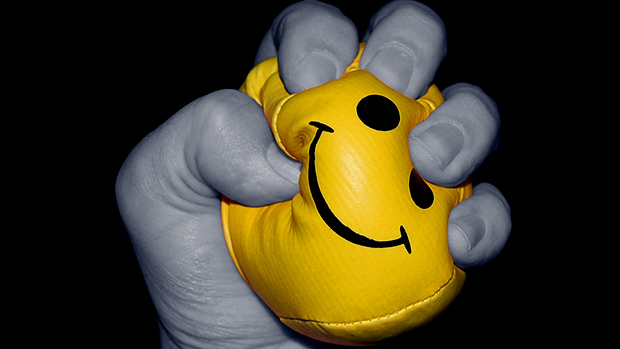You're Chronically Stressed
Chronic stress makes your body secrete cortisol, which suppresses sleep and muscle-growing hormones.
Excessive stress hormones can overburden melatonin production and wreck sleep. And this problem is more significant today because cell phones and 24-hour emails means work never stops. This forces us to be awake and alert when we should be asleep, and it messes with our natural circadian flow of stress.

Since there's no such thing as a 9-5 work day anymore, we secrete cortisol chronically. This suppresses sleep and muscle-building hormones (GH and testosterone), which promotes inflammation and insulin resistance and raises our risk of metabolic dysfunction.
Stress is supposed to be a short and infrequent reaction, designed to help us run fast, jump high, and be strong when our life is in danger. It's not supposed to linger with us all day as a reaction to bumper-to-bumper traffic, social media trolls, and urgent late-night emails.
This chronic stress and over-stimulation keeps us up at night, and not sleeping properly only exacerbates the problem. We don't produce enough melatonin to inhibit the stress production in the adrenals or enough GABA to turn off the over-stimulated neurons in our brain. This makes us sleep like crap and feel even more stressed the following day.
How to Fix It
- Avoid exercise, caffeine, and excess stimulation in the evening. Other than trying to exercise when it's light out and avoiding coffee too late in the afternoon, do your best to avoid stressful work and overly stimulating entertainment. It also means clearing your mind instead of filling it with a list of things you want to get done. Alternatives include meditation, writing out a to-do list for the next day, and picking up a book. We need to be heading to sleep with a calm brain, not a highly active one.
- Use stress-reducing supplements when necessary. Even with less light exposure and higher melatonin production, many are still over-stimulated by technology. After all, melatonin facilitates GABA production, but usually not enough to make up for an 8 PM viewing of Saw in 3D. Normally GABA acts as the brain's "off-switch," decreasing the action potential of the neurons in the brain and making them less likely to fire. But when the brain is overly-stimulated by the visual and audio orgasm that is the internet, GABA production is inadequate.
- Magnesium supplementation (such as ZMA®) is a great place to start for calming the nervous system. Although, depending on the severity of your sleep disturbance, a supplemental mixture with melatonin and GABA, or some of their amino-acid precursors (tryptophan, taurine) may also be worth exploring.





